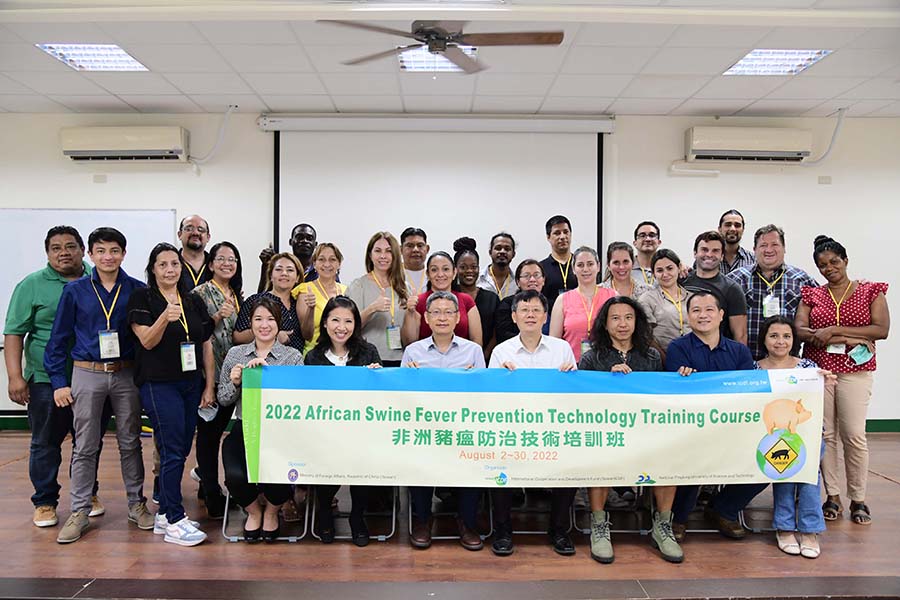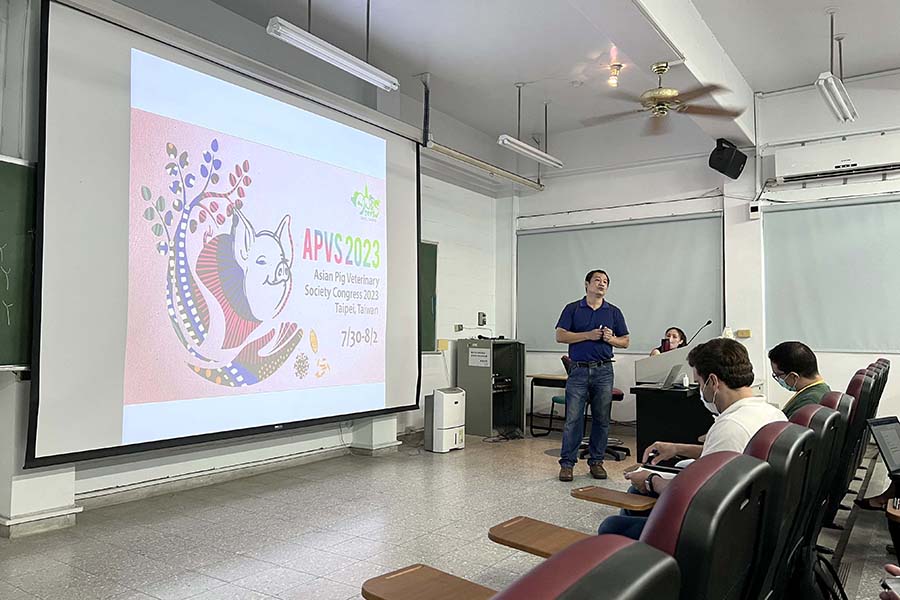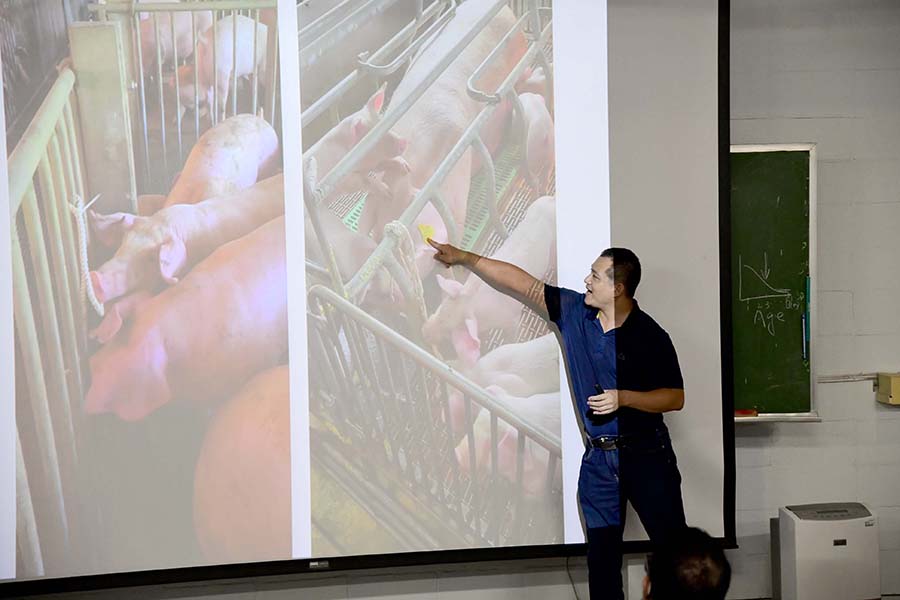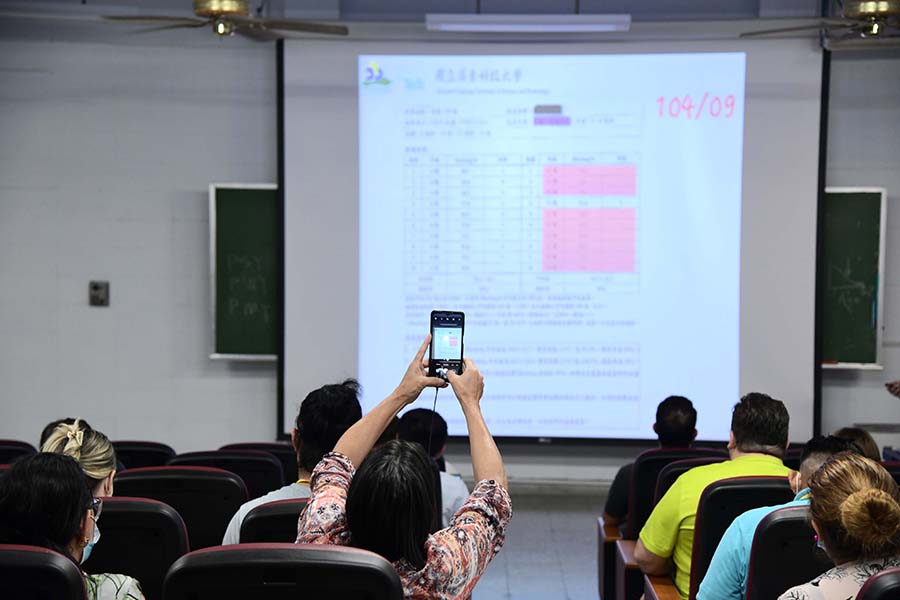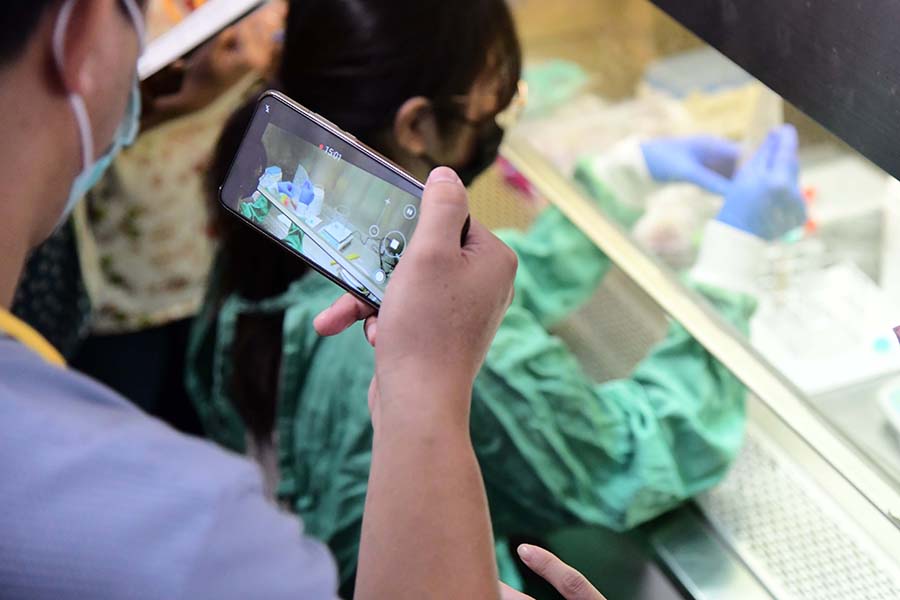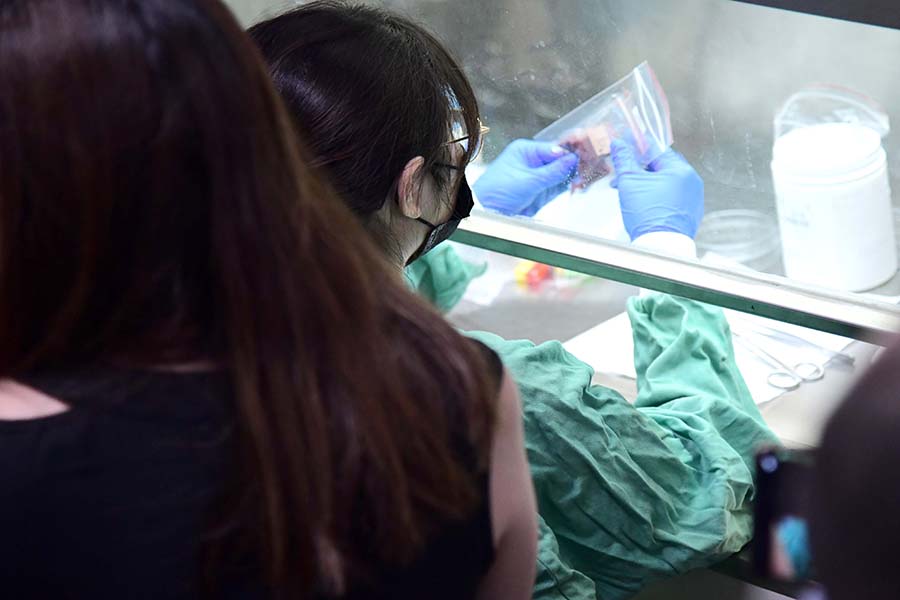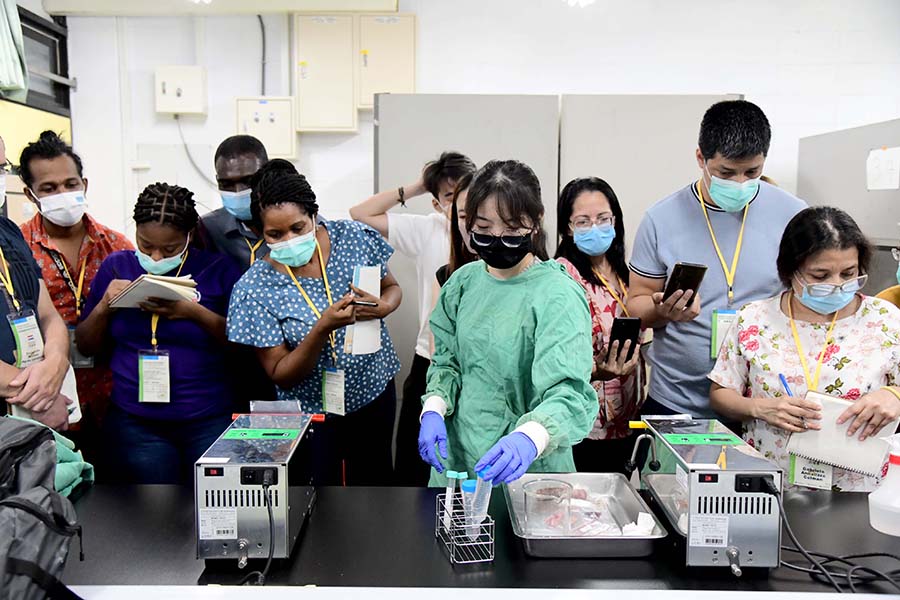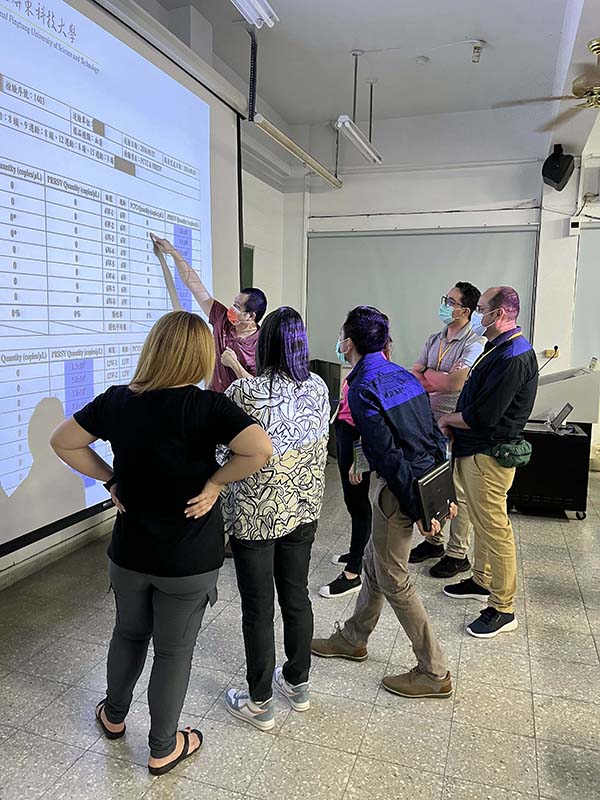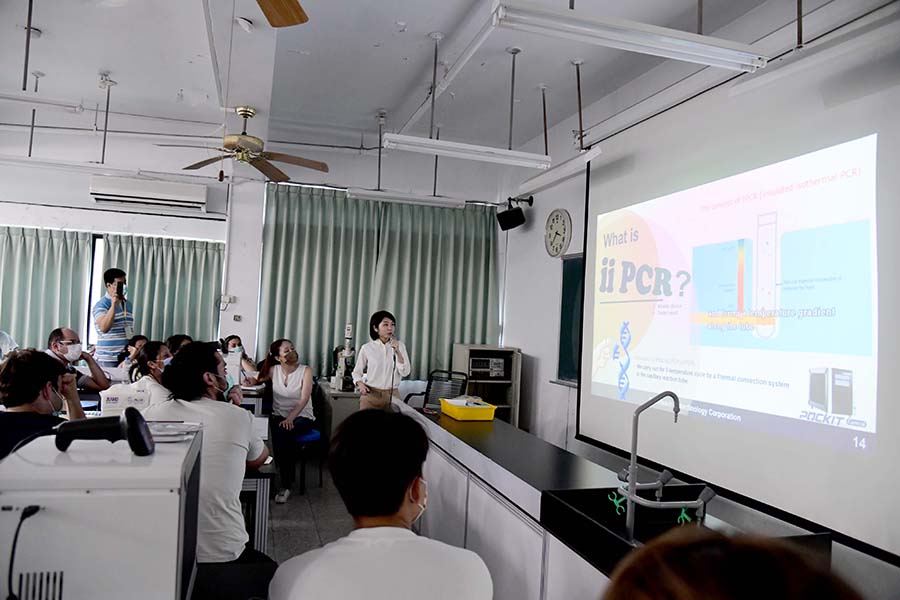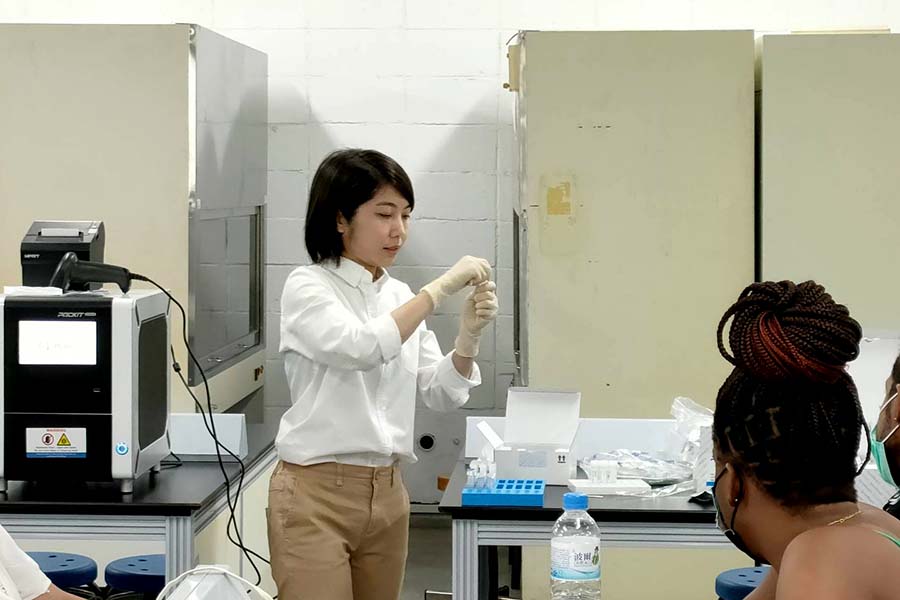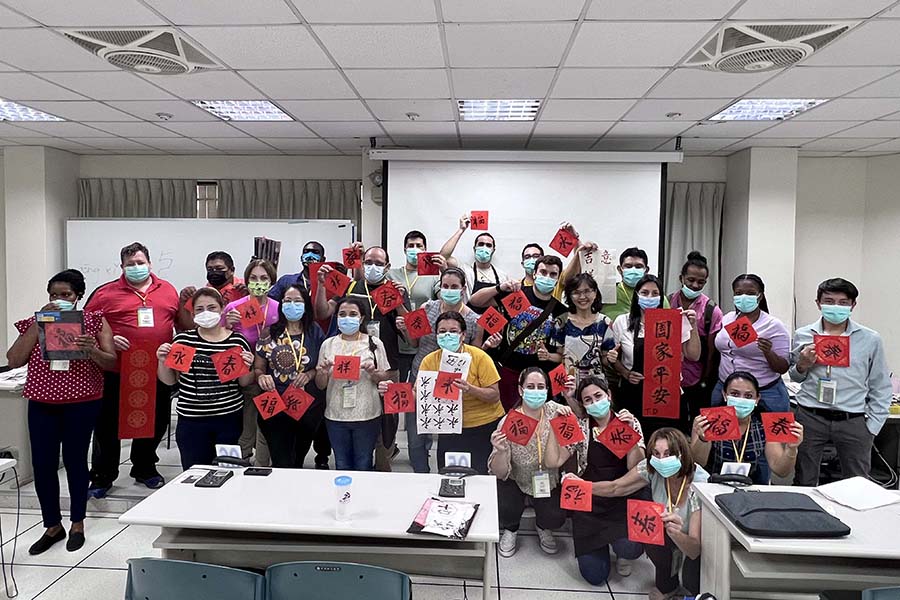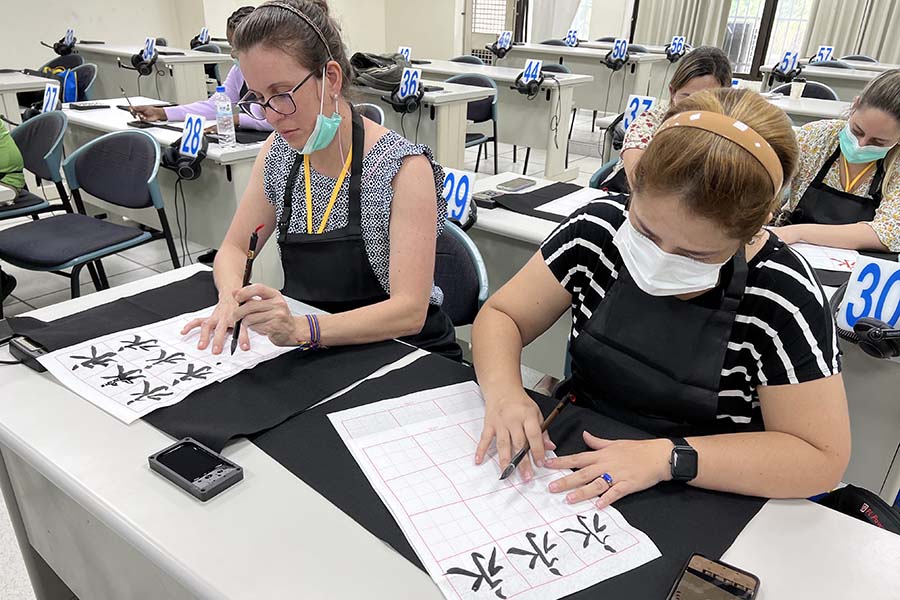The outbreak of African Swine Fever (ASF) in China in 2018 has attracted serious attention in Asia, and around the world. Meanwhile, the swine disease team at the National Pingtung University of Science and Technology (NPUST) Department of Veterinary Medicine, which has been monitoring and researching infectious swine diseases for many years, has been helping Taiwan avoid the problem. After the outbreak in China, Taiwan’s government put strict border controls in place and coordinated with relevant units to conduct inspection and diagnosis work. Cooperating with the university, it created a strong prevention and control network to successfully prevent African Swine Fever from invading the pig farms of Taiwan. The results of the efforts were recently affirmed by the International Cooperation and Development Foundation (ICDF), who signed a memorandum of cooperation with the university.
In order to share their techniques and experiences with allies, from August 2nd to 30th, 2022, the pair jointly hosted the “African Swine Fever Prevention and Control Technology Training Course” for professionals from countries diplomatically tied to Taiwan. A total of 24 professionals who work in related fields were recruited from Belize, St. Lucia, Guatemala, Honduras, and Paraguay. The course was designed and instructed by a team of NPUST professors, including Liang-Chou Hsia, Ming-Tang Chiou, Chao-Nan Lin, Wei-Hao Lin, Tsair-Bor Yen, Jai-Wei Lee, and Yu-Fei Chung.
Stephen J. H. Lee, Deputy Secretary-General of ICDF, said “this training course that we are holding in cooperation with NPUST is the first international class to be held physically since the COVID-19 epidemic began two years ago. The purpose of the course is to share our country’s African Swine Fever border control and prevention experience with others. In addition to arranging for students to perform virus antigen and antibody testing, they will visit slaughterhouses and animal disease diagnosis centers to get an understanding of the evacuation systems and processes after slaughtering or illness.”
Professor Chao-Nan Lin of the Department of Veterinary Medicine said “the NPUST swine fever team at NPUST has more than 20 years of overseas professional training and experience related to swine fever. Through the current training class, we will be able to further demonstrate Taiwan’s swine fever diagnosis and prevention capabilities— for ASF, Taiwan can help”.
One of the course’s enrollees, Edmond Medard Kitanda-passy of St. Lucius, said “I conduct quarantine-related work for a governmental veterinary unit. I am very grateful to Taiwan for providing the opportunity to attend this course on African swine fever. I am looking forward to bringing the techniques and experiences back to my home country. The pig farmers in Taiwan and the professors at the NPUST Department of Veterinary Medicine have very deep and professional literacy in production management and disease prevention. I hope to share the concepts I learn here with the pig farmers in my home country so we can protect the health of our pigs and prevent African Swine Fever from entering our country.”
The course designed by the NPUST team covers the current situation of the global pig industry, the characteristics of African Swine Fever, pathogenesis, epidemiological considerations, clinical symptoms, pathological changes, diagnostic techniques, prevention and control techniques, biosafety precautions, and national prevention and control systems. Physical classroom lectures were organized along with experimental operations and field visits. For the first week of the course, the students were in quarantine and classes where held virtually. Starting in the second week, physical classroom learning and field visits began. A number of cultural experience courses were also planned including: calligraphy, cloth dyeing, and museum visits to allow the students to experience the beauty of Taiwanese culture.
After the C-19 outbreak occurred, international health organizations greatly increased their focus on zoonotic infectious diseases. NPUST also increased its effort to use its epidemiological knowledge related to agriculture, animal husbandry, and veterinary medicine to guide farmers across Taiwan and improve their techniques in hopes of preventing diseases and detecting them early on when they occur. These researches who stand at the forefront of national disease management and epidemic prevention will continue to assist allies in the joint effort to safeguard world public health.

